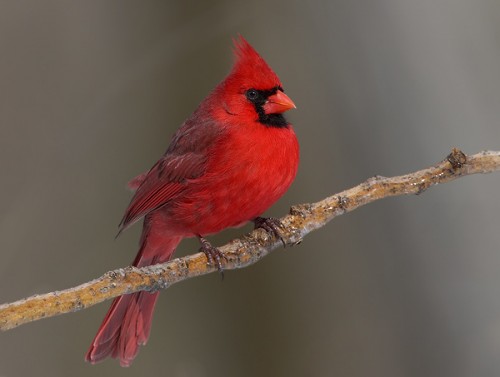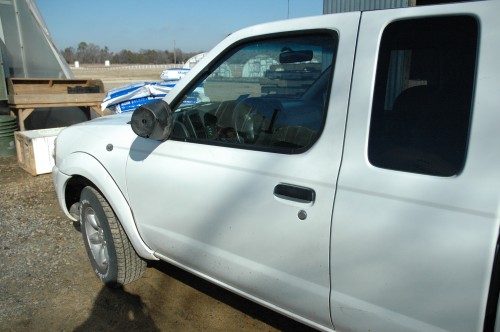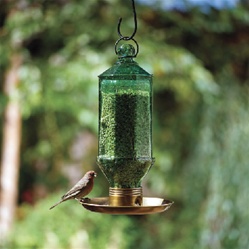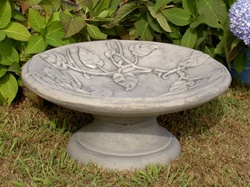by Briscoe White | Jan 21, 2011 | Life on the Farm, Miscellaneous, Wildlife |

Though beautiful, cardinals can be extremely vain!
Recently, at the end the day, I noticed a departing greenhouse worker remove a plastic nursery pot from each rear view mirror and stow them in his tool box. Old memories awakened as I asked him what was up with his mirrors. “That damn bird!” was his answer, and I knew a red bird had found his truck.
For as long as our greenhouses have been here, people working there have parked outside. And just as long, cardinals have found themselves irresistible in our rear view mirrors. Or maybe they see a rival that s equally matched? Whatever they see, it causes them to stay a long time and return frequently. And while they are looking deeply into the mirror, they are also digesting and leaving their droppings in large quantities. The mess is even worse when car windows are left down, then the inside is fouled too.

To keep our vehicles clean, we have to hide our mirrors from narcissistic birds!
Over the years, employees have tried various methods for stopping the cardinals from soiling their cars. Socks, hats, and various other items have been selected. But the best I have seen yet is an old nursery pot. We do try and cooperate with nature, but do not feel we need to share our vehicles with the birds.
by Briscoe White | Dec 17, 2010 | Life on the Farm, Wildlife |

A Bird Buffet!
If your area is experiencing the extreme cold we here in Virginia have, you have probably not thought much about working in the garden. My yard is frozen solid so there is not much that could be done, even if one could stand the frigid temperatures.
Though working soil and plants is a long way off, there is one garden chore we can still do. Feed the birds. Birds don’t just make for an amusing source of natural entertainment, they’re also vital to your garden. Birds help keep your garden pest free while also spreading necessary pollen from plant to plant to aide in plant fertilization. Without these valuable winged friends, we’d be lost, so if you take care of them, they’ll take care of you (and your garden)!
Like many gardeners, I keep several bird feeders in the yard. During cold snaps like this one, the birds need all the help they can get, and respond quickly to any food offered to them. They empty my feeders quickly and sometimes eat it all before they can be refilled. When I go out to refill them, I hear birds chirping and singing as if they know what I am doing. And they do know because the feeders are occupied by the time I am back indoors. Other birds hear the commotion and pretty soon the trees around the feeders are full of birds trying to get to the feeders.
You can also spread seed or place fruit like apples and pears along your porch rails or strung together with a needle and thread and tied to a tree branch, for an added variety of food to attract different types of birds this winter! Try recording how many new varieties you come across and keep a bird journal of their favorite foods, habits, and personalities.
Try adding nesting boxes or bird houses around your yard to encourage your feathered friends to stay longer! Purple Martins, Gold Finches and Bluebirds, to name a few, are very appreciative of a safe, dry place to nest. You can even grow your own! Try growing gourds this year and let them dry. Cut a hole for an opening and hang it for a natural bird abode. Keep your houses and nesting boxes out of the reach of children and pets and do not disturb them for happier house guests.

Birdbaths are good for more than bathing!
Even if it’s freezing out, birds also still need a clean water source. Try using one of our birdbaths this winter. You may have to break a little ice each morning to add fresh water, but we promise the birds will thank you. Place your feeders and birdbaths near your porch or window and enjoy the natural entertainment all year long!
Birds are an important part of my yard and garden, they bring action, color, and life. So do not forget them in these tough times and take time to feed the birds!
For more tips on feeding birds through the winter, check our article on caring for birds during the winter.




